Gender and equity in AMR surveillance
Introduction
This course examines how antimicrobial resistance (AMR) is shaped by both biological and social determinants of health; and what this means for global health policy and practice. You will develop an understanding of the importance of a biosocial approach to health that requires exploration of the social and contextual factors driving and shaping AMR, as well as people’s experiences of AMR and health-seeking across One Health domains.
It is important to identify how social factors create unequal health experiences and outcomes in order to understand how to address these in policies and interventions because they are largely avoidable if the broader social drivers are addressed. You will explore how gender and equity frameworks can be applied to AMR to help you understand and manage inequitable impacts of AMR in your own context.
After completing this course, you will be able to:
- define key terms and concepts related to gender and equity in AMR
- explain how biological factors, including sex, contribute to differences in the effects of AMR
- explain how gender roles, social norms and social determinants influence AMR exposure and experience across different life stages, identifying which social groups may be differently at risk of or impacted by AMR, and how this aligns with key gender equity and human rights mandates
- outline how focusing on equity can strengthen the One Health approach to AMR
- describe the current biases and inequities in AMR data, and explain the importance of disaggregated data in understanding AMR trends across human health, animal health and the environment
- make recommendations for more equitable approaches to AMR interventions and surveillance
- reflect on how gender-responsive and equitable practices in AMR relate to your work.
In order to achieve your digital badge and Statement of Participation for this course, you must:
- click on every page of the course
- pass the end-of-course quiz
- complete the course satisfaction survey.
The quiz allows up to three attempts at each question. A passing grade is 50% or more.
When you have successfully achieved the completion criteria listed above you will receive an email notification that your badge and Statement of Participation have been awarded. (Please note that it can take up to 24 hours for these to be issued.)
Activity 1: Assessing your skills and knowledge
Before you begin this course, you should take a moment to think about the learning outcomes and how confident you feel about your knowledge and skills in these areas. Don’t worry if you do not feel very confident in some skills – they may be areas that you are hoping to develop by studying these courses.
Now use the interactive tool to rate your confidence in these areas using the following scale:
- 5 Very confident
- 4 Confident
- 3 Neither confident nor not confident
- 2 Not very confident
- 1 Not at all confident
This is for you to reflect on your own knowledge and skills you already have.




